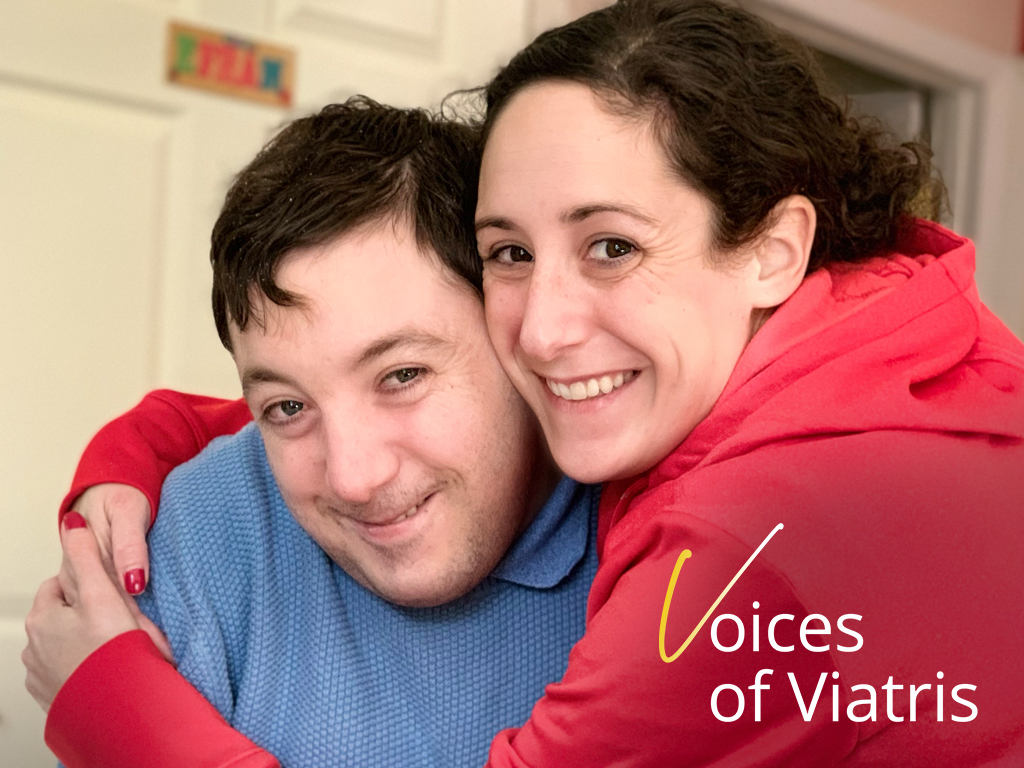Show Menu
Choose Your Location
You are now leaving the Viatris page for a Viatris affiliate site or third party site that is solely responsible for its content, including its compliance with guidelines applicable in certain geographies. Links to Viatris affiliate sites and third party sites are provided as a resource to our visitors and may not be governed by the same regulatory requirements applicable to this site and unaffiliated third party sites are subject to their own terms and data protection notices and practices. Moreover, if their third party site is subject to other country laws, regulatory requirements, data protection requirements or medical practices may differ between countries and the information provided therein may not be suitable for use in your country.

Voices of Viatris
By: Niki Kapsambelis
March 5, 2024
When Lauren Kashtan thinks about the point in her life when she started to realize what she stood for, she zeroes in on middle school: those awkward tween years, when kids who are taking their first steps toward adulthood start to form cliques and say things to impress each other.
She remembers kids casually tossing around a slur that is often used to disparage people with special needs. To Lauren, it was deeply personal. Her younger brother, Efram, had been born with a rare birth defect called agenesis of the corpus callosum. As a child, he wore braces on his legs and had trouble walking; his vocabulary is limited, and only those closest to him can understand his pronunciation of certain words.
“My sister and I were equally responsible for making Efram feel included in the world,” she said. “It became such a big part of my identity. And if I really reflect on what shaped me the most as who I am today, it’s being the sibling of a brother with special needs.”
Lauren, who is the Head of Global Corporate, Portfolio and Operations Communications, keeps those early lessons close to her heart still. As the co-chair of EmpoWer, Viatris’ employee resource group for women and their allies, she sees a sense of belonging and inclusion as one of the unifying characteristics of the membership. The theme of International Women’s Day for 2024, “inspire inclusion,” resonated with her childhood memories.
Hear Lauren’s thoughts on how EmpoWer helps to inspire inclusion in the workplace.
Her parents set the expectation: Efram was an active member of the family, going wherever they went.
“We never apologized for his behavior if he had outbursts or loud noises, or did things that other kids didn’t do,” Lauren said. If her brother approached a total stranger in a store and announced “love you,” his family members would engage in a conversation with them, not pull Efram away. When her father led services at their synagogue, Efram was beside him at the front of the congregation.
And when the middle-school kids started using slurs, Lauren found her voice and told them to stop.
“I had to start to advocate on his behalf. And he wouldn’t have known the difference otherwise, but I started to realize how much it mattered to me,” she said. “He wasn’t even there, and I educated people about how their words mattered.”
Hear Lauren’s perspective on having a personal connection to inclusion.
Lauren started college as a special education major at the University of Maryland, inspired by Efram. But in her junior year, she had an epiphany: she didn’t have to work in the field to honor her brother. She could explore her growing interest in marketing and communications and still make a difference.
“I think that was a really important decision in my life, to realize that there’s so much great work that people can do as advocates, and being part of organizations and just modeling behavior,” she said. “You’re still able to pursue that authentic part of yourself, but you can still pursue your own career aspirations, too.”
Efram is still on her mind often, and she keeps a picture of him on her desk. When she lived in Pittsburgh, Lauren struggled with the fact that she would not see him for months at a time, because he lives in a group home in Maryland. In 2023, she and her husband decided to return to Maryland so they could be closer to both of their families.
Today, they live on the same street as the house where Lauren grew up, and where her parents still live. Their children, who are 6 and 9, are surrounded by extended family, and they are able to see Efram often. Now they, too, are learning what inclusion means. And Lauren is transported back in time to her own childhood, seeing an entire synagogue embrace her brother as he expresses joy during the services they attend together.
In that way, she points out, Efram is actually the greatest role model of all.
“What’s amazing to me is that my brother – with all of his challenges and limitations and limited vocabulary – that he could make someone with none of those things feel included,” she said. “He will find, actually, the person in the corner, the person in the background, and he’ll seek those people out and look them in the eyes and say, ‘love you.’ And it’s just – it’s the coolest thing. So he’s actually the real role model.”